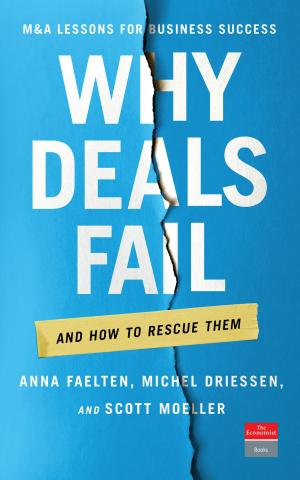Guide to Organisation Design
Creating high-performing and adaptable enterprises
Business & Finance, Management & Leadership, Planning & Forecasting, Management| Author: | Naomi Stanford, The Economist | ISBN: | 9781610395762 |
| Publisher: | PublicAffairs | Publication: | April 28, 2015 |
| Imprint: | The Economist | Language: | English |
| Author: | Naomi Stanford, The Economist |
| ISBN: | 9781610395762 |
| Publisher: | PublicAffairs |
| Publication: | April 28, 2015 |
| Imprint: | The Economist |
| Language: | English |
Business failure is not limited to start ups. Industry Watch (published by BDO Stoy Hayward, an accounting firm) 'predicts that 17,043 businesses will fail (in the UK) in 2006, a further 4 per cent increase from 2005'. In America between 1990 and 2000, there were over 6.3 million business start-ups and over 5.7 million business shut-downs.
Risk of failure can be greatly reduced through effective organisational design that encourages high performance and adaptability to changing circumstances. Organisation design is a straightforward business process but curiously managers rarely talk about it and even more rarely take steps to consciously design or redesign their business for success.
This new Economist guide explores the five principles of effective organisation design, which are that it must be: driven by the business strategy and the operating context (not by a new IT system, a new leader wanting to make an impact, or some other non-business reason). involve holistic thinking about the organisation be for the future rather than for now not to be undertaken lightly - it is resource intensive even when going well be seen as a fundamental process not a repair job. (Racing cars are designed and built. They are then kept in good repair.)
Business failure is not limited to start ups. Industry Watch (published by BDO Stoy Hayward, an accounting firm) 'predicts that 17,043 businesses will fail (in the UK) in 2006, a further 4 per cent increase from 2005'. In America between 1990 and 2000, there were over 6.3 million business start-ups and over 5.7 million business shut-downs.
Risk of failure can be greatly reduced through effective organisational design that encourages high performance and adaptability to changing circumstances. Organisation design is a straightforward business process but curiously managers rarely talk about it and even more rarely take steps to consciously design or redesign their business for success.
This new Economist guide explores the five principles of effective organisation design, which are that it must be: driven by the business strategy and the operating context (not by a new IT system, a new leader wanting to make an impact, or some other non-business reason). involve holistic thinking about the organisation be for the future rather than for now not to be undertaken lightly - it is resource intensive even when going well be seen as a fundamental process not a repair job. (Racing cars are designed and built. They are then kept in good repair.)















